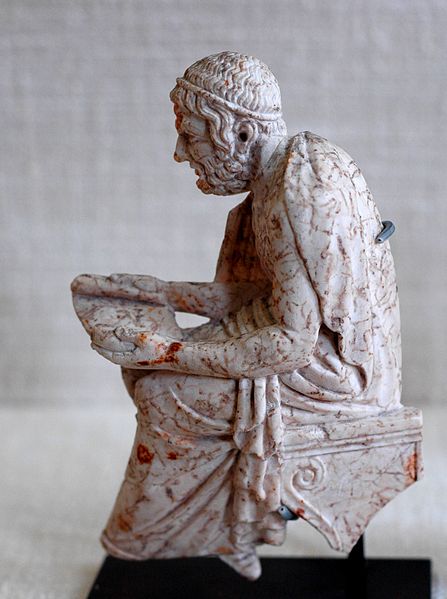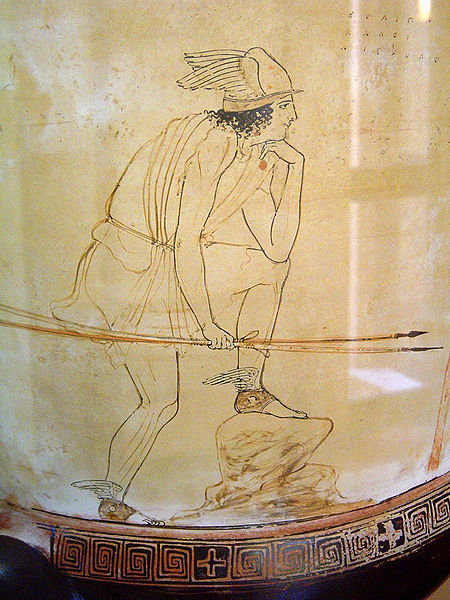Electra, also spelt Elektra, is one of the most popular mythological characters in tragedies. She is the main character in two Greek tragedies, Electra by Sophocles and Electra by Euripides. She is also the central figure in plays by Aeschylus, Alfieri, Voltaire, Hofmannsthal, and Eugene O'Neill. She is a vengeful soul in The Libation Bearers, the second play of Aeschylus' Oresteia trilogy. She plans out an attack with her brother to kill their mother, Clytemnestra.
Electra at the Tomb of Agamemnon, Frederic Leighton c. 1869
Orestes, Electra and Hermes at the tomb of Agamemnon, lucanian red-figure pelike, c. 380–370 BC, Louvre (K 544)
Sophocles was an ancient Greek tragedian, known as one of three from whom at least one play has survived in full. His first plays were written later than, or contemporary with, those of Aeschylus; and earlier than, or contemporary with, those of Euripides. Sophocles wrote over 120 plays, but only seven have survived in a complete form: Ajax, Antigone, Women of Trachis, Oedipus Rex, Electra, Philoctetes, and Oedipus at Colonus. For almost fifty years, Sophocles was the most celebrated playwright in the dramatic competitions of the city-state of Athens which took place during the religious festivals of the Lenaea and the Dionysia. He competed in thirty competitions, won twenty-four, and was never judged lower than second place. Aeschylus won thirteen competitions, and was sometimes defeated by Sophocles; Euripides won four.
Sophocles
A marble relief of a poet, perhaps Sophocles
Portrait of the Greek actor Euiaon in Sophocles' Andromeda, c. 430 BC.
Oedipus at Colonus by Jean-Antoine-Théodore Giroust (1788), Dallas Museum of Art






